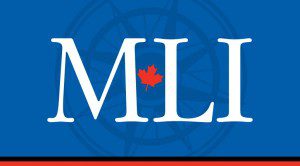 Creating more competition among health care providers can help empower patients and reduce costs for governments, write Mark Ronayne and Dr. Richard Audas.
Creating more competition among health care providers can help empower patients and reduce costs for governments, write Mark Ronayne and Dr. Richard Audas.
By Mark Ronayne and Dr. Richard Audas
We need novel approaches to improve Canada’s health care performance. Here’s one: Empower patients. Give us informed choices in our care and make providers compete to meet our needs. Patients will benefit — and the system will too.
As everyday buyers of goods and services, we have a whole range of information sources and choices we can draw on. But for the one thing that is perhaps most essential to our wellbeing — our health care — we often have very little relevant information and our choices for care are restricted or distorted. As a consequence, we have limited ability to drive health care providers to compete to better meet our needs.
Every time we buy groceries, pump gas or decide which television station to watch, competition is contributing to the range of choices, to the cost and accessibility of services. Competition drives innovation and improvement.
Our recent study for the Macdonald-Laurier Institute shows that competition can improve health care, too. We focus on two main areas: hospitals and health professions, which account for 54 per cent of health care expenditures in Canada.
Hospitals
The U.K. presents a useful case study. In 2006, the Labour government implemented a system whereby all referrals to hospital were accompanied by a choice of five options where individuals could have the service performed with the full cost being borne by the National Health Service. Performance standards were also created so that patients could decide where they would get the best care based on the criteria most important to them.
Thanks to these reforms, high-performing hospitals were financially rewarded. Studies have found that mortality declined, efficiency increased and costs stayed the same or fell.
A shift toward activity-based funding (ABF) for hospital services, or funding by the number of procedures performed, is key to this kind of competition. Under the current global budgeting system, where hospitals get a lump sum, patients are seen as a cost, while ABF would reward performance and productivity.
Health care providers
While Canada’s health care system seems to allow patients to choose their health care providers, in reality our choice is often restricted to the profession that is reimbursed for providing care. So patients often choose expensive insured treatment options over less expensive treatments they’d have to pay for out-of-pocket. As a consequence, we are limited in our ability to obtain the care that best meets our requirements and preferences.
Doctors earn between 2.5 and 3.5 times what other highly-trained medical professionals earn. But many routine visits to doctors’ offices could be handled by nurse practitioners just as effectively. Midwives have been found to perform as well or better than obstetricians in terms of outcomes and patient satisfaction. Physiotherapists and chiropractors can replace GPs in delivering certain kinds of care — again, at a lower cost.
Allowing different professional groups a greater opportunity to compete would encourage innovation, and evidence suggests that should result in as-good-or-better outcomes at a considerable cost saving. Paying closer attention to what is and is not covered under our health care system would address this imbalance; providing information on the competing services available would allow patients real choice in the treatments they receive.
But again, patients don’t have access to information that would allow competing providers to be effectively compared and chosen based on the type and quality of care they provide. This needs to change.
Patients should demand more information and greater choice in their care. And hospitals and providers shouldn’t be afraid of a little healthy competition.




